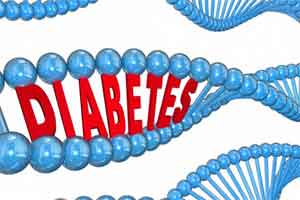- Home
- Editorial
- News
- Practice Guidelines
- Anesthesiology Guidelines
- Cancer Guidelines
- Cardiac Sciences Guidelines
- Critical Care Guidelines
- Dentistry Guidelines
- Dermatology Guidelines
- Diabetes and Endo Guidelines
- Diagnostics Guidelines
- ENT Guidelines
- Featured Practice Guidelines
- Gastroenterology Guidelines
- Geriatrics Guidelines
- Medicine Guidelines
- Nephrology Guidelines
- Neurosciences Guidelines
- Obs and Gynae Guidelines
- Ophthalmology Guidelines
- Orthopaedics Guidelines
- Paediatrics Guidelines
- Psychiatry Guidelines
- Pulmonology Guidelines
- Radiology Guidelines
- Surgery Guidelines
- Urology Guidelines
Diagnosing diabetes made easier by a hand-held breathalyzer

For several years, scientists have been working toward "breathalyzers" that can diagnose various diseases without painful pinpricks, needles or other unpleasant methods. Now, one team has developed a new, portable breath analyzer that could someday help doctors diagnose diabetes noninvasively in the office. The report appears in the ACS journal Analytical Chemistry.
Many studies examining the hallmarks of diabetes in exhaled breath have shown that elevated levels of acetone are strongly linked to diabetes. Detecting the concentrations of any given substance in breath in a simple way, however, is a major challenge. Breath contains a complex mix of compounds, including water, carbon dioxide and methane, that can throw results off. Mass spectrometry can do the job, but it's not very practical for point-of-care testing. Robert Peverall and colleagues wanted to fill that void.
The researchers created a hand-held device with an adsorbent polymer that can trap acetone from exhaled breath, then release it into a cavity where a laser probes its concentration. They tested the accuracy of the device on the breath of healthy subjects under different conditions, such as after overnight fasting or exercising, and compared results with mass spectrometry readings. The measurements were a close match and covered a wide range of concentrations, including those that would suggest a patient has undiagnosed type-1 diabetes, or has problems controlling their blood glucose. Adding to the practicality of the device, the researchers say it could be re-used many times.
You can read the full Article by clicking on the link :
Thomas P. J. Blaikie, John Couper, Gus Hancock, Philip L. Hurst, Robert Peverall, Graham Richmond, Grant A. D. Ritchie, David Taylor, Kevin Valentine. Portable Device for Measuring Breath Acetone Based on Sample Preconcentration and Cavity Enhanced Spectroscopy. Analytical Chemistry, 2016; DOI: 10.1021/acs.analchem.6b02837

Disclaimer: This site is primarily intended for healthcare professionals. Any content/information on this website does not replace the advice of medical and/or health professionals and should not be construed as medical/diagnostic advice/endorsement or prescription. Use of this site is subject to our terms of use, privacy policy, advertisement policy. © 2020 Minerva Medical Treatment Pvt Ltd